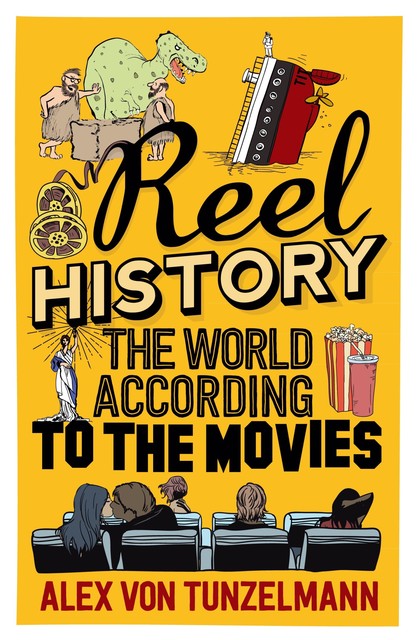
en
Удобнее в приложении:
iOS
·Android
Reel History
- О книге
- Цитаты76
- Читают7
- Похожие книги
Эта книга сейчас недоступна
318 бумажных страниц
- Правообладатель
- Bookwire
- Дата публикации оригинала
- 2015
- Год выхода издания
- 2015
- Издательство
- Atlantic Books
Цитаты
- reizen99186цитирует4 года назадClass: Back to 1950, when young Margaret (née Roberts) is being interviewed as a prospective Conservative candidate for Dartford. In the film, this takes place at an intimidating formal dinner. One of the guests is businessman Denis Thatcher. Grocer’s daughter Margaret is daunted by the cutlery. Denis whispers: ‘Start on the outside and work your way in.’ This did not happen to Margaret Roberts. Instead, it has been lifted from the 1990 film Pretty Woman, starring Julia Roberts (no relation) as a Los Angeles prostitute. During the real Dartford selection meeting, Margaret Roberts sat on a podium next to her father and discussed the welfare state. Instead of attacking it, she claimed some credit for the Conservatives for setting up the Beveridge Commission – the inquiry that led to its foundation. It is true, though, that Denis was in the audience.
- reizen99186цитирует4 года назадs the 1980s began, the Cold War still had a hold across the globe. The state of mutual antagonism between the United States and the USSR was now heavily backed by nuclear weapons and space technology. To handle this massive responsibility, the American people elected their first Hollywood president: former movie star Ronald Reagan. Reagan, who had appeared in notable movies like Dark Victory (1939) as well as less lauded productions like chimp comedy Bedtime for Bonzo (1951), never entirely stopped acting. Threatening to veto tax increases, he quoted Clint Eastwood from one of the Dirty Harry movies: ‘Go ahead… make my day.’
Reagan was a big fan of Sylvester Stallone’s Rambo films, which he quoted with regard to policy, and of George Lucas’s sci-fi movie Star Wars (1977). From the latter, he appropriated the term ‘evil empire’ to describe the Soviet Union, and the subtitle ‘a new hope’ to describe his own policies. When his government set up the Strategic Defense Initiative, a massive ground- and space-based programme designed to protect the United States from nuclear attack, the media christened it Star Wars. As Reagan’s biographer Michael Rogin points out, it may have had more to do with Murder in the Air (1940), in which Reagan himself played Secret Service man Brass Bancroft. It is Bancroft’s job to protect a new defensive weapon designed to destroy any attacking missile – just like the SDI. - reizen99186цитирует4 года назадJohn Wayne’s The Green Berets, which is such a travesty of history that it fired up real Vietnam veteran Oliver Stone to make his ferociously anti-war film Platoon (1986) in response – followed by one of the best:
1964
The Green Berets (1968)
Director: John Wayne & Ray Kellogg • Entertainment grade: E+ • History grade: Fail
Production: During the early 1960s, criticisms began to grow of US involvement in Vietnam – to the consternation of big-screen cowboy and deep-dyed patriot John Wayne. Wayne believed in the righteousness of the American cause, and wanted to make a film about it. His source material (largely discarded for the final screenplay) was a gung-ho novel by Robin Moore, The Green Berets, based on Moore’s experiences with Special Forces in Vietnam in 1963. Wayne wrote to President Lyndon B. Johnson to secure government approval. ‘If he made the picture he would be saying the things we want said,’ presidential adviser Jack Valenti assured Johnson. The Pentagon allowed Wayne lavish use of props and military bases for filming; it also retained script approval, and insisted on extensive and detailed changes to plot and dialogue.
fb2epub
Перетащите файлы сюда,
не более 5 за один раз

